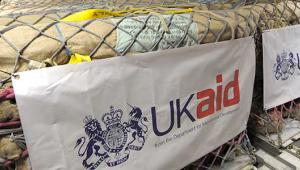The new guidance, released by the OECD’s Development Assistance Committee, last week, aims to help governments implement measures to “prevent and respond” to sexual expoitation, abuse and harassment “in their activities in the disbursement and/or management of aid.”
Survivors and victims should be put first, according to the DAC’s Recommendation on Ending Sexual Exploitation, Abuse and Harassment in Development Co-operation and Humanitarian Assistance.
It stated: “The DAC Recommendation is the first international instrument on sexual exploitation and abuse (SEA) and sexual harassment (SH) that applies to development co-operation and humanitarian assistance.”
Cases of sexual exploitation, abuse and harassment “call into question the integrity of the international aid community and the credibility of aid itself,” it said.
The new recommendation “was developed in response to disturbing reports of sexual exploitation and abuse in development co- operation and humanitarian assistance.”
Governments should develop policies, strategies and work plans as well as codes of conduct to prevent sexual exploitation, abuse and harassment, it said.
It also proposed that clear guidelines be established for staff on when and to whom they should report concerns – and how senior management should respond.
In addition, there should be protection for those who report abuse and harassment, internal complaints and investigation procedures, protection for whistleblowers and victims of abuse, and screening to prevent perpetrators being hired.
Although the framework is not legally binding, it signals a strong political commitment to a set of principles that countries should follow.
Jorge Moreira da Silva, OECD director of development co-operation, said: “This is a clear acknowledgement that the entire development co-operation community is accountable for the deplorable abuses by some aid workers against people in the most vulnerable contexts.”
He added: “Long-overdue fixes need to be made at every point of the responsibility chain – in aid policies, aid delivery, and support for victims and survivors.”
Susanna Moorehead, chair of the DAC, described the move as “momentous for the DAC and for the entire development community.”
She said: “The DAC is the first multilateral body to agree to hold ourselves to account in the battle to eradicate sexual exploitation and abuse.”
Moorehead added: “But success depends on DAC members actually implementing this recommendation, as well as a cultural shift in organisations and a permanent behavioural change by perpetrators.”














